Best Work Placement Scheme – City Firm
Gibson, Dunn & Crutcher UK LLP
The vacation scheme gave me a real insight into the work areas and environment of the firm, and I felt as if I was undertaking the same sort of work that I would be doing as a trainee.
It is hard to imagine a more intriguing sentence to describe the foundation of a law firm, reproduced verbatim here: “In May 1872, a tall, 34-year-old, red-bearded lawyer stepped down from the stagecoach at the Plaza of Los Angeles.” If you’re not intrigued by that, then perhaps the dynamic and entrepreneurial Gibson Dunn is not the firm for you – a point that Mark Speretto, partner and training principal, makes about the nature of the firm’s culture: “We are looking for bright high performers, who are confident, entrepreneurial and, importantly, who will fit into this environment. So you need to be driven, a good team player, a fast learner and someone who can think on their feet. Some people prefer to be spoon fed, but that won’t happen here – we want those who are keen on a career at a U.S. established firm and know why they are choosing that experience over anything else.”
Gibson Dunn, winner of this year’s award for ‘Best work placement scheme – City firm’, has 20 offices and over 1,300 lawyers globally, with its London office existing for more than 35 years. Clementine Hollyer, second-seat trainee, was attracted to the firm’s scheme for a variety of reasons, as she explains: “I was keen to learn more about US firms; having done some work experience at a magic circle firm when I was at school, I wanted to see the other side of the coin. I knew that I was interested in exploring litigation, and Gibson Dunn’s name kept popping up in relation to some interesting, high-profile cases. Their pro bono work, such as on the Proposition 8 case in California, was also indicative of the firm’s values.”
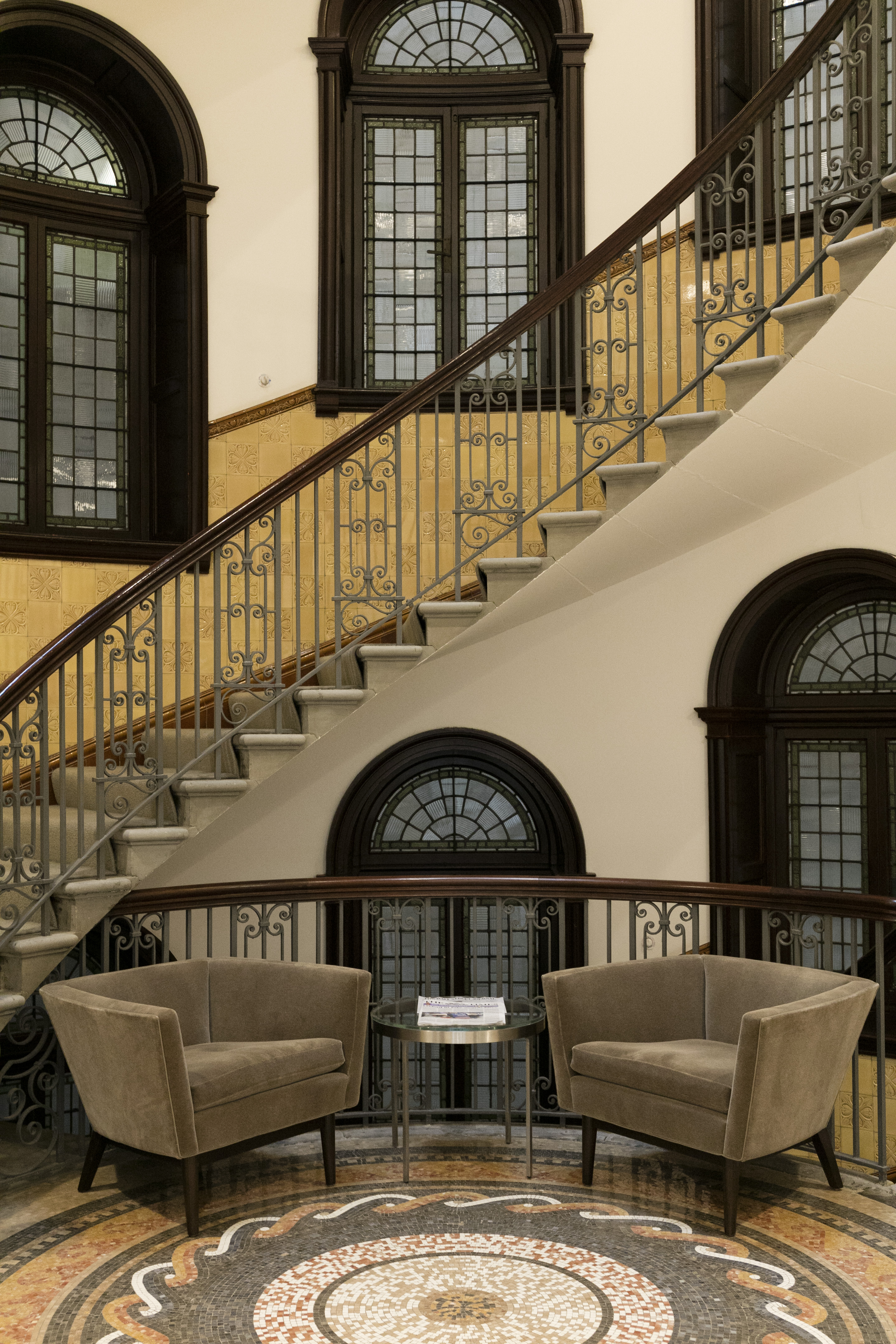
The firm’s three-week vacation scheme, which has been running for six years and from which the firm recruits approximately 90% of its trainees, is characterised by a huge amount of effort from throughout the firm. “It is our principal trainee recruitment tool and although not the only way to get a training contract, we prefer to choose from the scheme,” explains Mark. “And it’s of benefit to both sides; we get to see someone interacting in our office environment and they have the opportunity to take part in interesting work and see what City lawyers do day to day.”
Some people prefer to be spoon fed, but that won’t happen here – we want those who are keen on a career at a U.S. established firm and know why they are choosing that experience over anything else
The scheme is designed to showcase the firm, but also to leave all participants with the sense they’ve had a valuable experience – regardless of whether they go on to secure a training contract. Katy Edwards, the firm’s graduate recruitment and professional development manager, describes the way in which this is achieved: “When we designed the programme, we thought carefully about our own vacation scheme experiences and about how best to balance getting to know the students, whilst ensuring that they would learn something while here. During the three weeks students split their time between a transactional seat and a disputes seat and we encourage their supervisors to involve them in live matters to reflect as closely as possible what life as a trainee is really like. We set a busy timetable and we hope that this helps hone their skills juggling competing deadlines. Even the negotiation exercise, which is often regarded by students as their favourite task, helps develop useful practical skills.”
There is plenty of opportunity for detailed feedback on the assessed written tasks, one of which has a corporate slant while the other is disputes focused. “The exercises are marked by fee earners, who feed back to the students how they’ve done,” describes Katy. “We think it’s important for participants to understand what worked well and how they might improve; we don’t want them to feel that their hard work has been lost into a vacuum.”
Mark expands: “Along with the detailed feedback, we give them tips and techniques, such as presentation and advocacy skills, and practical advice about how firms work internally and what to look out for in terms of difference. We have a long discussion about culture and what it means – not just in terms of day-to-day work, but how the firm is structured and the people it employs. Even if they don’t receive an offer, they will leave hopefully having learnt something valuable.”
Our existing trainees are deeply involved with recruitment, as they remember the process – and are helping to assess those who might potentially be their trainees in two years’ time!
A huge investment of time and energy from the entire firm ensures that the scheme is a success and is a reflection of the emphasis put on home-grown talent. “Our existing trainees are deeply involved with recruitment, as they remember the process – and are helping to assess those who might potentially be their trainees in two years’ time!” reflects Mark. “We want that continuity and internal growth because it means that on day one, your associates are ready to go and are working in an area that they have chosen.” Even more so if those trainees have done the scheme: “Most firms say similar things in their brochures and websites, especially about work and culture, so there’s really no substitute for seeing it in person. Someone who has accepted a training contract having done the scheme is in a much stronger position; there are no surprises on day one!”
Clementine recalls some of the specific features of the scheme: “There was an excellent mix of assessed tasks and real-life work with a supervisor. I was pleased to find that the work was light on proofreading and admin tasks; as a non-law student, having the chance to do some interesting legal research was great as a way of starting to learn about the law. I was also taken to a signing, which I had helped prepare the documentation for.”
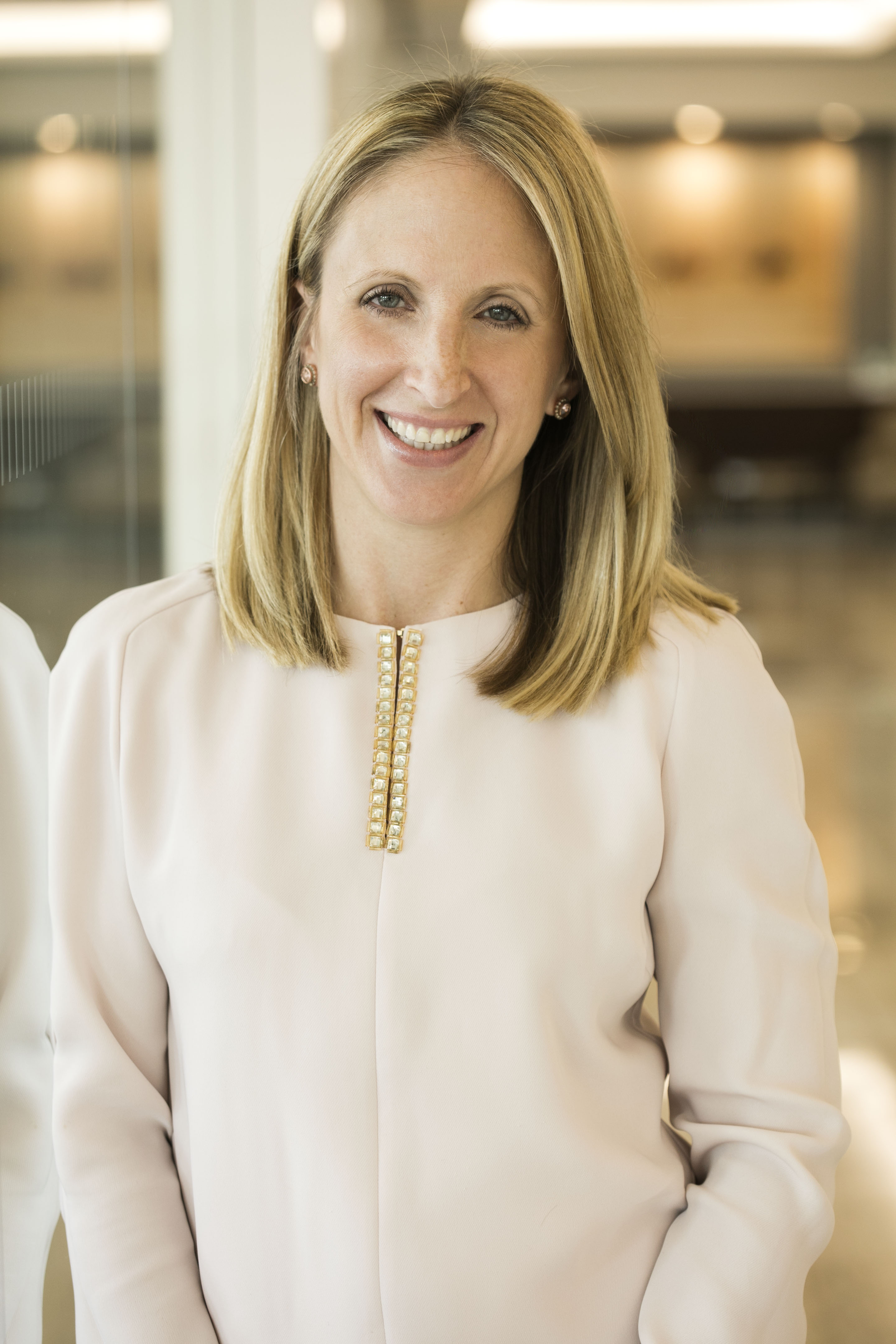
In addition to work and assessments, the scheme features a dazzling array of social functions, such as a legal treasure hunt, bowling, a night at Flight Club, and drinks on the firm’s roof garden. Clementine comments: “There was a lot of socialising and networking; it was a full-on three weeks in that respect! We played ping pong, had a curry night, enjoyed champagne and canapes on the London Eye with some of the partners, and were encouraged to play in the firm’s softball team.”
The scheme features ‘coffee conversations’, which are informal chats between students and partners about what it’s like to work in individual departments, the type of work and cases they’re involved with, and life as a trainee. Katy comments: “There are a huge number of partners and senior associates involved in the programme, and students commonly mention how impressed they are with how many partners they get to speak to.” Clementine adds: “The coffee conversations were great, as we were able to ask questions and chat informally. And my supervisors both did a brilliant job of introducing me to everyone on the floor, so I felt that I was able to meet almost everyone at the firm while I was there.”
Having Lord Falconer as one of the firm’s partners is a unique bonus for the vacation schemers, as Katy describes: “He is happy to chat to all the students about his experiences as lord chancellor and as a senior commercial silk, and is keen to find out about their legal aspirations. Having access to someone of that calibre is an amazing opportunity.”
There was an excellent mix of assessed tasks and real-life work with a supervisor. I was pleased to find that the work was light on proofreading and admin tasks; as a non-law student, having the chance to do some interesting legal research was great as a way of starting to learn about the law.
In fact, opportunities abound on the scheme – but it is incumbent on participants to make the most of them, as Katy points out: “Be yourself, but remember that it is your one opportunity to impress; it is a competitive process, and everyone is academically able, so you need to go all out to make sure that your name rises to the top of the list when decisions are being made. Produce your best work every time, adopt a commitment to excellence, and show your enthusiasm for both the scheme and the firm.” Clementine chips in with her advice: “I was aware that I wasn’t coming from a legal background, but I knew that I had many skills to showcase and I focussed on doing my best, communicating well with my supervisor about the progress of my work, being organised and professional.”
An emphasis on personal connections translates all the way through to when the trainees start at the firm and are assigned a mentor, who is a senior lawyer, and a trainee buddy, who is there to support the new joiner throughout the training contract. Katy explains: “The buddy system works really well; the buddies have a budget to take their trainee out for drinks and lunches, or perhaps to see a show or to attend a sporting event together. Trainees also have a more senior mentor to help them settle in and offer more professional support and advice on career progression. And our doors are literally always open – for any questions at all.”
Size plays a big part in the trainee experience, as Mark explains: “We often find that applicants are attracted by the size of the firm and an intake of just six. Fewer trainees means that the work is more varied and comes from lots of different parts of the business. Our trainees aren’t just siloed away in one area.”
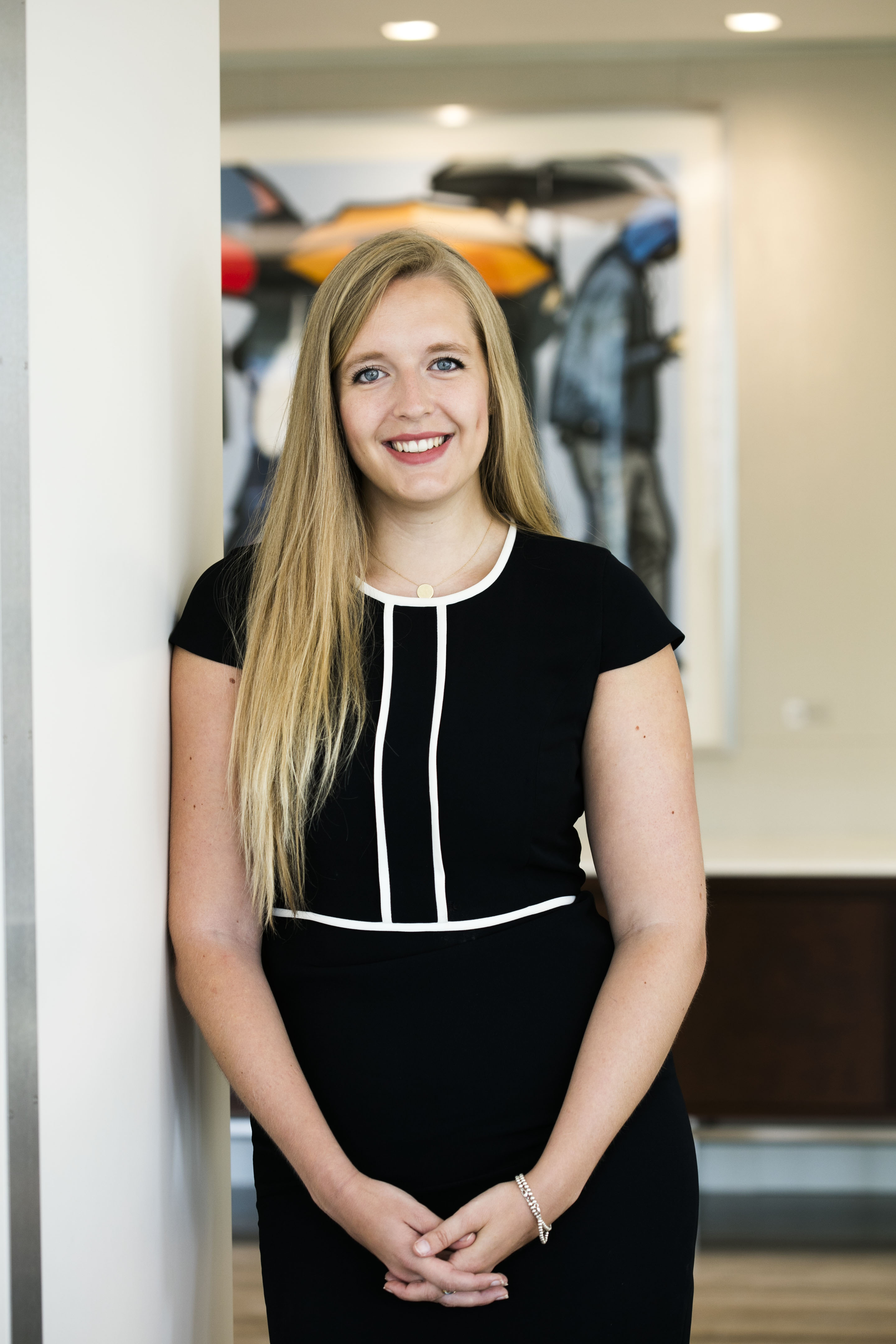
Clementine confirms this: “Being a relatively small group of trainees means that we are part of the fabric of the firm and are in demand, as there is a lot of work! We are kept busy and able to be involved at all levels – especially when compared to a firm that takes on hundreds of trainees. The variety is huge and the level of involvement is high.” She continues: “It has exceeded my expectations – I had heard horror stories about the hierarchical structure and intense working hours at American law firms, but my experience at Gibson Dunn couldn’t be more different; I’ve been able to get involved with everything that I’ve wanted to and have had much more client and partner contact than I was expecting.”
Katy sums up Gibson Dunn’s success in terms of both the vacation scheme and trainee recruitment generally, and how it feeds into the culture of the firm as a whole: “We don’t believe in making applicants jump through hoops, instead taking a much more traditional, meritocratic approach to recruitment, which I think sets us apart. We are all extremely proud to be part of the firm and we place a huge value on reaching the right people and getting the right message across. Everyone at the firm – partners, associates and trainees alike – is involved in recruitment and has a seat at the table. I truly think that is one of the secrets of our success.”

Best Work Placement Scheme – City Firm
The vacation scheme gave me a real insight into the work areas and environment of the firm, and I felt as if I was undertaking the same sort of work that I would be doing as a trainee.
Best Trainer – National/Large Regional Firm
Mills & Reeve LLP
The supervision is excellent. As a trainee you are treated equally to fellow fee-earners and receive meaningful and valuable work. I was given exposure to clients very early on in my first seat, alongside a brilliant support system.
The commercial world is changing. Gone are the days when success in business was the purview of a privileged view – nearly always pale and male. Law firms are waking up to the fact that in a diverse, globalised environment, clients want to work with lawyers who understand where they come from and the different ways in which they work. However, altering the way that you recruit and train in order to build this diversity is not always straightforward – unconscious bias is, by its very nature, not something one chooses to apply. Yet Mills & Reeve – winner of this year’s LCN Award for Best Trainer, National/Large Regional firm – have found a devastatingly simple and effective solution to the challenge of how to open your eyes. Close them.
“We started using blind CVs the year before last, in one office, as a trial,” explains Training Principal Caroline Dean, who was appointed to the role 18 months ago and has been at Mills & Reeve for 14 years now. “Then we rolled this out to the whole firm.”

Blind CVs – as the name suggests – means that the candidate’s name and academic background is removed from the application after an initial sift. “It’s a really effective way to strip out our own unconscious bias for Russell Group and Oxbridge universities,” Caroline affirms, maintaining that bold actions such as this are the only way to level a heavily skewed playing field.
We stretch our trainees but we support them – and we never stop doing that.
Recruitment advisor Rachel Chapman explains that Mills & Reeve has backed up this commitment by signing up to RARE, which leads the field in diversity graduate recruitment. “The stats have been very positive so far,” she reports.
“We also offered unconscious bias training to the new recruitment team, which is made up of volunteers throughout the firm,” explains Caroline. When the firm first announced that such training would be provided, the only problem they faced was having too many volunteers – which speaks to the fact that this move towards diversity is no box-ticking exercise but the result of a deep-seated culture throughout Mills & Reeve.
Birmingham-based trainee Amandip Dhillon has certainly benefited from this open-minded approach. Born in Germany, Amandip moved to the United Kingdom when she was six and was part of the first generation in her family to go to university. “Coming from a working-class background means that you don’t necessarily have as many opportunities,” she points out. “But you are still determined to succeed and might have to be more creative with the options you pursue .”
Supervisors are experienced and committed and are keen to ensure that trainees experience all the different types of work within a team.
Her unconventional path to a training contract is an excellent example of this. Amandip studied law at the University of Birmingham and was disappointed to miss out on a place on a vacation scheme in her second year. However, she did not let this setback discourage her. “Instead I did voluntary work experience –two to three days a week at a small high street firm during the long vacation,” she recalls. She then sought out and won a scholarship from her university to cover her costs. “The experience really helped me with applications – it’s so important to add things to your CV.”
This commitment and ingenuity are testament to Amandip’s resilience – a quality valued by Mills & Reeve – and helped her to sail over the next few bumps she encountered. When she did not get a training contract straight out of university, instead of despairing, she pivoted and started to apply for paralegal positions instead. “Six months after finishing I had secured a paralegal position at a high street firm working with private individuals,” she explains with satisfaction. However, this was never the end game for her. She was already aware of the firm and she knew that she wanted to stay in Birmingham, so that meant a regional firm and Mills & Reeve is leader of the pack in the Midlands. Amandip did her research – a friend of a friend who was already working as a paralegal there had only good things to say of the firm, while additional enquiries left her impressed with the calibre of clients and the quality of work on offer. Her mind made up, Amandip used her job as a paralegal as a stepping stone, applying for and obtaining a similar position at Mills & Reeve’s private client department.
And there she might have stayed. Firms need paralegals – it is not always in their interest to help them find routes to qualify as lawyers. However, this was not the case at Mills & Reeve. “The team helped me progress,” explains Amandip. “They never tried to hold on to me as a paralegal. They went out of their way to help with my progression and my application – the partners were more than happy to provide me with references!”
More than ever, we’re looking for people who are open, adaptable and flexible.
Part of the need for firms to look beyond traditional routes to law is not only to attract new talent – but also because graduates have opened their eyes to the fact that there is now more than one track to a legal career. Amandip recalls one woman in her intake who had completed a Waitrose graduate scheme before she decided to switch careers and go for law. “She did her GDL part-time, then her LPC and now she’s doing her training contract. The whole environment is more competitive now,” Amandip muses. “People don’t always apply for training contracts while at University any more – they might consider it as an option later on.”
However, while all these new paths to a training contract are well and good, can such innovative thinking extend into the training contract itself?
“Our managing partner likes to say that we have high wires and strong nets,” Caroline laughs. “We stretch our trainees but we support them – and we never stop doing that.”
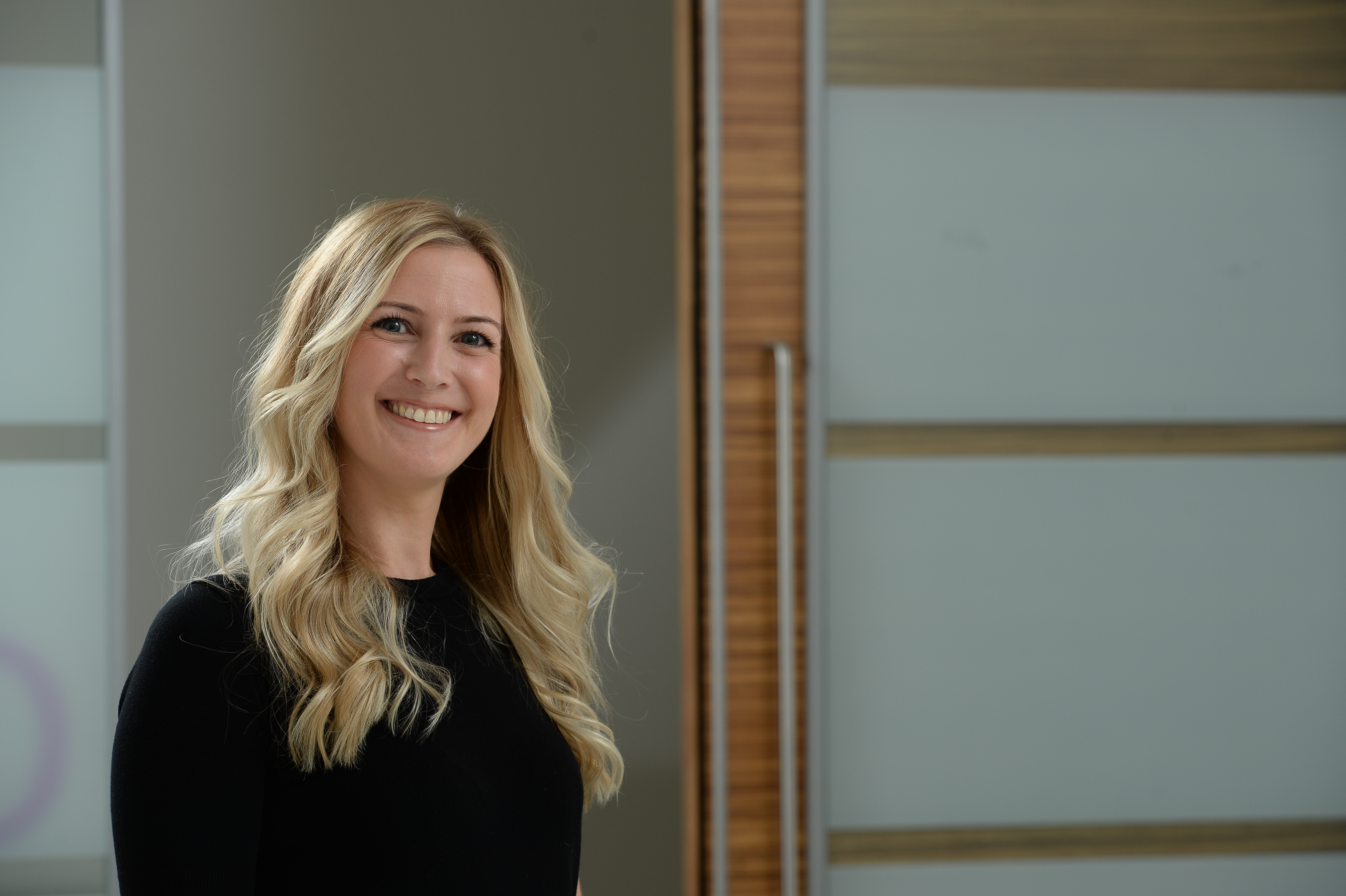
Mills & Reeve offers six four-month seats – a move that has proved popular with trainees as it exposes them to more departments than they might otherwise experience in the two-year training contract. “I’m still not sure where I want to qualify,” laughs Amandip. “So it’s really good to have extra options. So far I’ve done corporate, construction and real estate in Manchester – it was a really positive experience to work in a different office.”
Given the pace of change between seats, excellent support is critical. “The key is to make sure that there is a rapport between each trainee and their seat supervisor,” Caroline explains. “We make sure we have the right people in place and that they know what’s expected of them. Supervisors are experienced and committed and are keen to ensure that trainees experience all the different types of work within a team. Obviously reviews are an important part of this but it’s also about the day-to-day interaction. This generation needs constant feedback – it’s how they were taught at school. When they do a piece of work they expect feedback there and then.”
Trainees are also allocated a principal, who remains with them throughout the two-year duration of the training contract. “This is a partner,” reports Rachel. “Someone who is very well integrated who can act as a champion for them and also as a mentor. We also match them with a ‘buddy’ from the year above – someone they can go to with the smaller, day-to-day issues – the kind of thing you don’t always want to bring to a partner.”
I’ve worked on some high-value transactions and I’ve felt really involved. It’s never mundane here.
This level of support is crucial over the intense two years of the training contract. Amandip admits that she has found that being a trainee is very different to being a paralegal. “When you’re a paralegal, you’re a fee earner in your own right and you’re managing your own files,” she points out. This situation could not be more different as a trainee. The six-seat training contract inevitably means that trainees often come in half-way through matters. “In the corporate department I was the fourth trainee to work on a particular deal,” Amandip recalls. “It was complex and stressful but it was a really good day when it completed – the clients were really happy. The responsibility feels the right level for a trainee. I’m in contact with clients and I’m trusted to complete matters without someone looking over my shoulder. I’ve worked on some high-value transactions and I’ve felt really involved. It’s never mundane here.”
The support does not stop here but extends to deeper, structural issues as well. “It’s crucial to have the right facilities,” Caroline confirms. Mills & Reeve has been refurbishing all its offices and she explains that they encountered various issues in Norwich when the people there were relocated to a nearby building while improvements were underway. “The temporary space was a very traditional set up and we just had nowhere to go!” she says. “It was really awkward.” In sharp contrasts to this, the refurbished Mills & Reeve offices have placed a high priority on creating more breakout spaces, which in turn allow for informal, spontaneous one-to-ones. “Trainees use those a lot,” adds Rachel. “It’s about taking people away from their computer so that they can meet.”
As well as the less usual six-seat system, the Mills & Reeve training contract also distinguishes itself by offering a significant number of client secondments –a practice from which Amandip has already benefited when she worked as a paralegal. Rachel explains that this is an excellent way for trainees to appreciate the firm’s over-riding focus on client care and to gain experience of working in-house.
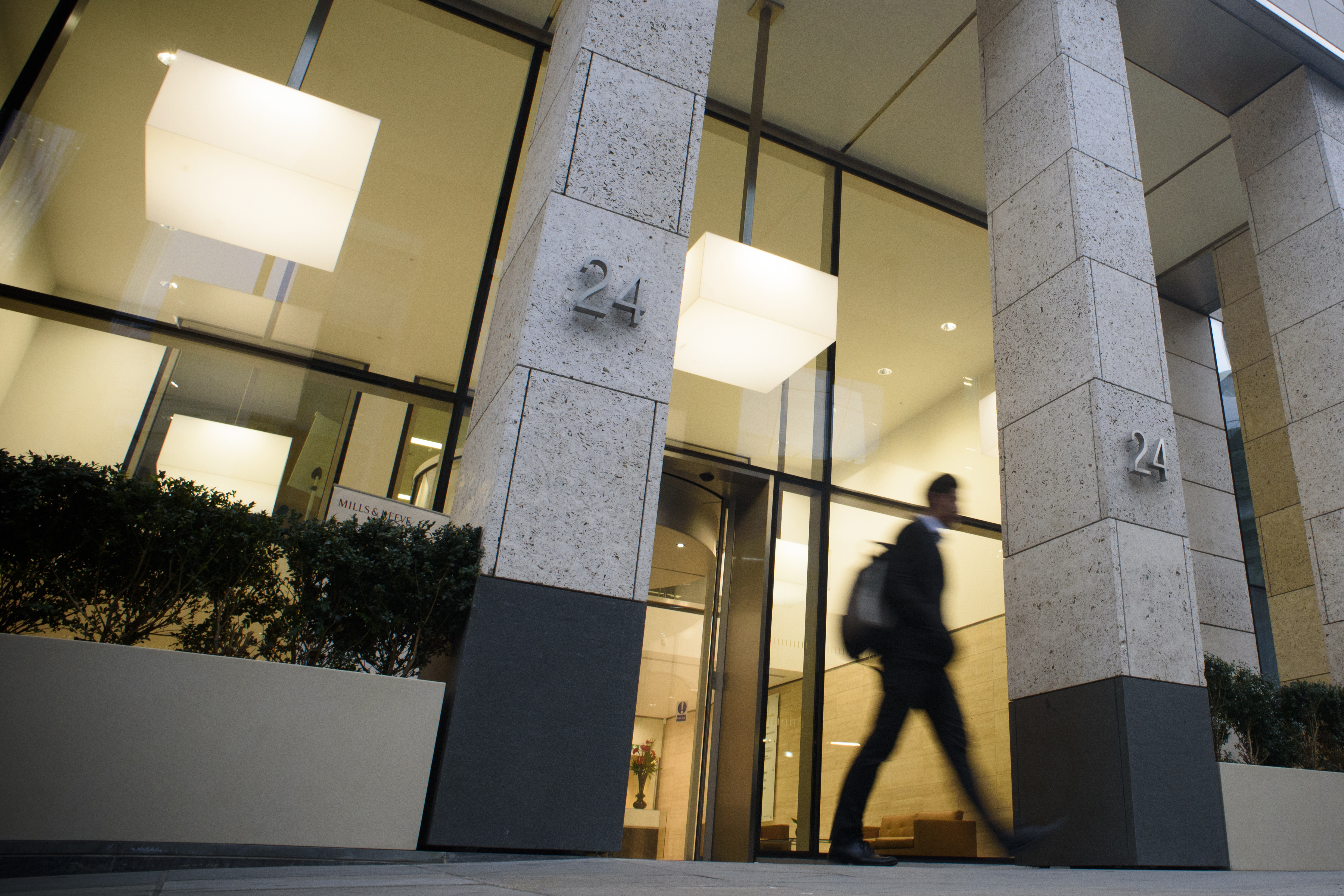
So where next for Mills & Reeve? “More than ever, we’re looking for people who are open, adaptable and flexible,” Caroline reflects. “The law is changing – technology and artificial intelligence are going to have a big impact on the way that we do business, so we need people who will be open to that. We’re looking for people with potential, which can take us through to the next stage.”
“Drive is another one,” says Rachel, when considering what qualities the firm is looking for in potential trainees. “We’re looking for the future leaders of the firm – and that doesn’t always mean partners.”
“Commerciality is key for the firm,” Caroline points out. “ We have a very broad church of practice areas – from corporate to family practice; we’re looking for people to advise clients in a wider way, to become their trusted advisers.”
The pace of change shows no signs of slackening. The recruitment and training departments are already at the forefront of new paths to qualification. “We’re spending a lot of time trying to work out our approach to the new Solicitors Qualifying Exam which came out of the Legal Education and Training Review,” Caroline confirms. “And we already have several apprentices. I’d like to see them go all the way through and meet up with the training contract cohort during the two years. It’ll be tricky but if we can make it work it will be worthwhile.” Given the way that Mills & Reeve has already embraced change and acted decisively to transform the way that it recruits, it’s fair to say that they’re looking ahead with eyes open.
By Liz Rutherford-Johnson

Best Trainer – National/Large Regional Firm
The supervision is excellent. As a trainee you are treated equally to fellow fee-earners and receive meaningful and valuable work. I was given exposure to clients very early on in my first seat, alongside a brilliant support system.
Best Recruiter – Medium Regional Firm
Michelmores LLP

The firm demonstrated themselves to be very approachable, proactive in their approach to me as an individual, and flexible about integrating me into the recruitment process.
With locations in Exeter, Bristol and London, Michelmores offers the best of both worlds. Trainees benefit from the supportive atmosphere of a regional firm as well as opportunities for secondment to its London office, which attracts significant international work. The firm’s impressive offering has not gone unnoticed, garnering it Best Recruiter – Medium Regional Firm at this year’s LCN Awards.
Alice Spicer Edwards is a first-year trainee in the firm’s Exeter office. She first encountered Michelmores when the firm gave a presentation at the University of Law in Exeter, where she was completing her LPC. “They spoke about the different types of firm you can work for and how to decide which is right for you,” she recalls. “I completed my undergraduate degree in London, and at university the focus was very much on Magic Circle firms. Until Michelmores came to speak to us, I think I was probably a bit ignorant of the fact that there were law careers outside the City that could be just as rewarding and challenging, but with a better work-life balance.”

Alice attended Michelmores’ assessment day in April 2017 and began her training contract there in September that year. Now in her second seat in education, she identifies client contact as a personal highlight of the experience. “Part of the reason I wanted to become a lawyer was to help people, and my current seat has given me a lot of opportunities to go out and meet clients – it helps you to really put yourself in their shoes.”
We were mentioned in The Times this year for recruiting a higher proportion of state-school pupils as trainees than the average firm.
In her cohort of seven trainees, Alice is one of three not to have done a vacation scheme at the firm. While the scheme is clearly not a prerequisite to securing a training contract, she would encourage prospective applicants to go for it. “Since starting, I’ve been someone’s buddy on the vac scheme and I think it’s the best way to see whether the firm is for you. People get so much exposure when they’re here – they’re doing real work with people in the department,” she explains. “The assessment day in itself was very beneficial – it’s an intense day, and I was lucky to get on it and be able to start the job in September – but you just don’t get the same feel for the firm because there isn’t time.”
Sacha Pickering, training principal and partner at the firm, explains what stand-out qualities he looks for in candidates. “Aside from the obvious ones, like planning and organisational skills, the thing that we really expect to see from exceptional candidates is the ability to think independently, critically and creatively.” Gabby Essame, the firm’s graduate recruitment specialist, adds: “Our trainees are given a lot of responsibility, so we look for people who can demonstrate that they use their initiative and are keen to go above and beyond what’s expected of them in their role. We recruit to retain – we’re looking for trainees who will stay with us and become senior associates and partners. We want candidates who have the potential to be future leaders at the firm, and good commercial awareness is an important part of that.”
The firm’s selection process is designed to draw out these qualities and give candidates every opportunity to shine. “I had a video interview to start with,” recalls Alice. “You’re given a question and you have 30 seconds to prepare your answer and then about 60 seconds to respond. I’d never done one before, so it was a slightly strange experience! After that, I had an interview with HR and it really felt like they were trying to get to know me. They weren’t asking trick questions; they were genuinely interested in me and made me feel at ease. On the assessment day, I had another interview with the training principal, where I was asked a few more commercial questions – they weren’t testing specific knowledge as much as seeing how well I could draw on my own experiences and what my thought processes were like. They weren’t questions that you could really get wrong – it was more like a discussion, so it didn’t feel intimidating.”
Since starting, I’ve been someone’s buddy on the vac scheme and I think it’s the best way to see whether the firm is for you.
Successful candidates are selected by the HR team and various partners. “We all get involved with the interviews and assessments, then we’ll come together at the end of the vac scheme week or assessment day to go through the candidates one by one and come to a collective decision,” Sacha explains.
Michelmores is not content to rest on its laurels when it comes to recruitment – this year, the firm moved its vacation scheme assessment days forward with a view to catching the best candidates early. “We review our processes more or less continuously – every year we do something a bit differently,” says Gabby. “We get feedback at the end of our vacation scheme and we carry out a review at the end of each summer of recruitment to see what we could have done better.” The firm is committed to ensuring that it attracts the brightest candidates, regardless of their background. “We were mentioned in The Times this year for recruiting a higher proportion of state-school pupils as trainees than the average firm,” adds Gabby.
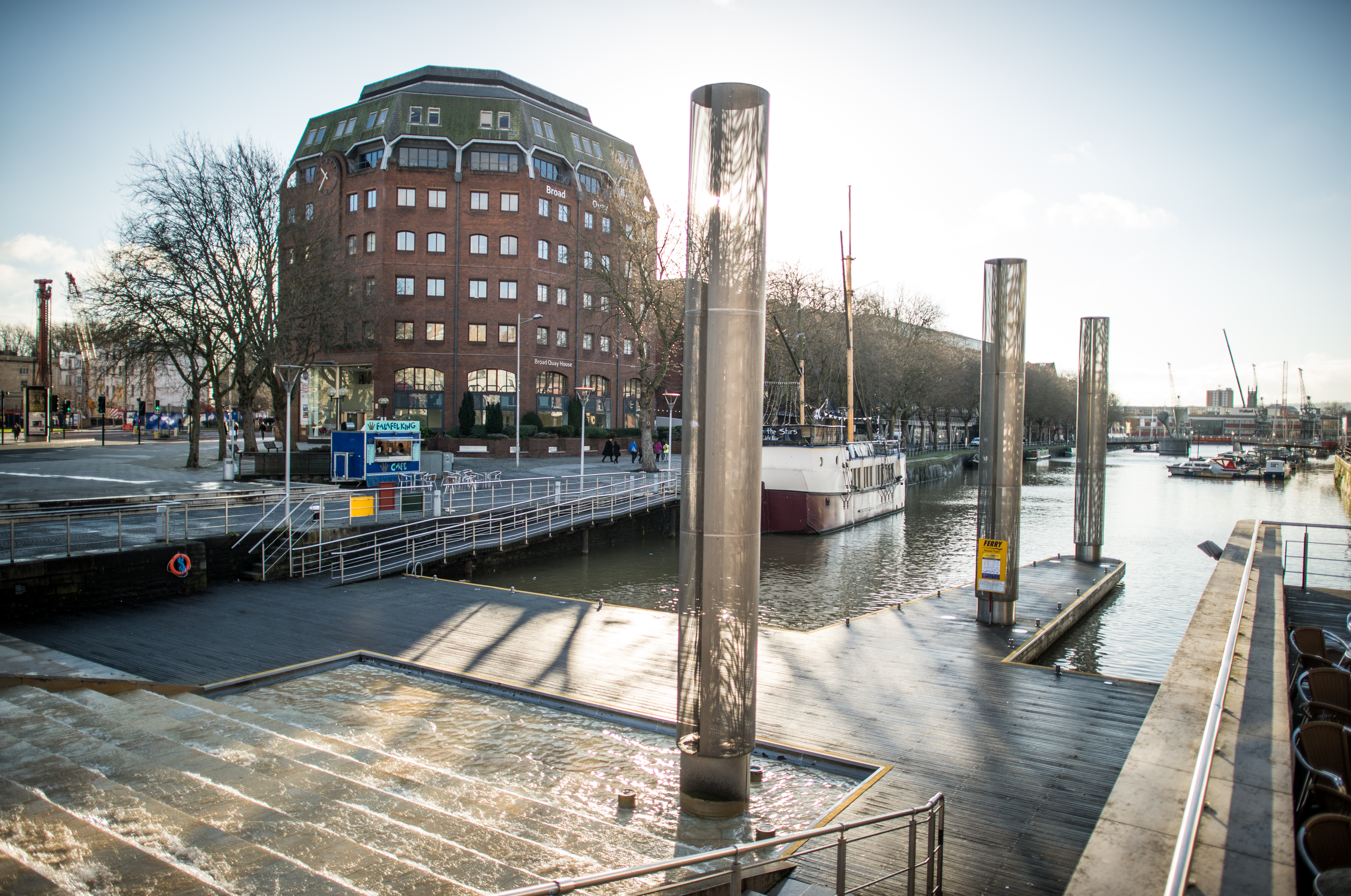
Once successful candidates have been offered a training contract, they are assigned a ‘buddy’, who is one of the firm’s current trainees. “The purpose of that is to give them somebody to speak to in the lead-up to joining the firm and ask questions of,” Gabby explains. Incoming trainees who have never worked in a law firm might find this new environment daunting, but Michelmores ensures that new starters are eased into life at the firm through introductory events. “We had an induction day and drinks, which meant that I knew people here before I started,” recalls Alice. “There was also an introductory week, where we met our team and learned practical things, like how the computer system works – we did all sorts of preparation which meant that when we started work, it wasn’t overwhelming because we already felt comfortable within the firm.”
This support endures well after trainees’ first day on the job, as Gabby explains: “We have a trainee liaison network, which is led by four solicitors and associates who act as mentors. This means that trainees always have someone to go to with any concerns or just to talk things through, and they meet every two months – both as a group and individually.”
Sacha observes that “there is a lot of two-way communication between trainees and the firm. I receive regular feedback from both the supervisors and other team members, and trainees have formal mid-seat and end-of-seat appraisals, which means that we can check on their progress – which is generally all good. We also have regular team meetings, which give us an opportunity to update the trainees about firm information and for them to speak to us as a group about any concerns they might have or anything that we could be doing better.”
We want candidates who have the potential to be future leaders at the firm, and good commercial awareness is an important part of that.
This emphasis on communication is balanced against the responsibility entrusted to trainees, allowing them to learn quickly in a supportive environment where asking questions is encouraged. “It’s very much a case of going off and doing the work, and coming back if you’re not sure about something, or to have your work checked before it goes out to the client,” says Alice. “Now that I’m in my second seat, I’m much more confident and I’m given more responsibility in managing the smaller files, but I’m still supervised by the more senior people in my team. It’s an appropriate amount of responsibility – they don’t just let you run off and do silly things!”
Michelmores’ friendly reputation precedes it, as Alice discovered: “Before I started, I kept hearing that the people at Michelmores were just so nice – and now I’m that person that tells everyone the same thing!” she laughs. “Everyone is so approachable, from my trainee peers up to the managing partner – whenever I see him, he stops and asks me how I am.” The office’s open plan helps to foster this supportive environment, with no intimidating closed doors to separate trainees from the upper echelons of the firm. “We have a lot of partner contact,” Alice agrees. “Half an hour ago, the partner in my team called me for a chat, just to check that I was alright and everything was going well. I also sat next to a partner in my previous seat and always felt comfortable asking her questions.”
But it’s not all work and no play – the firm regularly organises social events, encouraging people across the three offices to get to know each other and creating a sense of community. “The thing that people say is different about Michelmores is the culture – although we’re heading towards 450 people now, it is still a place where everybody knows who everyone else is,” says Gabby. “It’s really fun,” enthuses Alice. “Today I’m going to play in a mixed netball tournament, and we recently had a sports day – it creates a kind of buzz around the firm.”

For those wanting a change of scenery, the firm’s other locations provide attractive secondment opportunities. Alice is about to embark on a split seat in commercial litigation and employment at the London office – a popular option among trainees. “The secondment to London provides great exposure to a different market,” Sacha explains. “Trainees get a feel for how the firm and the legal sector operate there, and it allows them to get involved in some international work. It also enables trainees to qualify into London if they enjoy it.”
Reflecting on her experience since joining Michelmores, Alice is grateful that the firm’s recruitment programme opened her eyes to the possibilities of a fulfilling career outside the City. “I’d say I’m lucky compared to my peers from university; I think I have a better work-life balance and probably enjoy my job more than a lot of them. I’m really glad that I’ve had the opportunity to work in a regional firm – it’s exceeded my expectations, definitely.”
By Sophie Harrop

Best Recruiter – Medium Regional Firm
The firm demonstrated themselves to be very approachable, proactive in their approach to me as an individual, and flexible about integrating me into the recruitment process.
Best Trainer – Small Firm
Lanyon Bowdler Solicitors LLP
I can’t speak highly enough of the client interaction afforded to trainees at the firm. From almost my first week, I was meeting clients and being exposed to real-life legal issues. This has given my fellow trainees and me a practical, human approach to solving legal issues that you just can’t get sitting at a computer all day.

Best Trainer – Small Firm
Best Recruiter – Large City Firm
Herbert Smith Freehills LLP

The main application question was not the typical “Why law?” or “Why a City firm?”; rather, it was aimed at understanding the applicant, their background, their achievements and what they were interested in, which provides scope for a broader range of answers and, ultimately, a more diverse intake.

Best Recruiter – Large City Firm
Best Recruiter – Small Firm
Helix Law
The partners are directly involved in recruitment, which gives a clear point of contact and also establishes a good relationship from the very beginning of the recruitment process.
We are a firm specialising in dispute resolution, litigation and adjudication. We look for hard working ambitious people who deliver.

Best Recruiter – Small Firm
“The partners are directly involved in recruitment, which gives a clear point of contact and also establishes a good relationship from the very beginning of the recruitment process.”
Best Recruiter – Medium City Firm
Forsters LLP
The recruitment process was excellently run. With friendly communication, and a high level of partner involvement, I was made to feel that the firm genuinely valued its trainees and was fully invested in the recruitment process.
Formed in 1998, Forsters is still relatively young compared with many of its competitors, but this didn’t stop it taking away the 2018 award for best recruiter – medium City firm. According to Victoria Towers, graduate recruitment and commercial real estate partner, the firm’s history is one of its distinguishing factors. “We are quite modern”, she explains, “and I think this comes through in how we approach things. We have a traditional client base and traditional areas in which we work, but we’re forward thinking in our approach and I love that.”
Clearly unafraid to do things differently, Forsters has carved its own path from the beginning. Unwilling to merge with a large City-based firm, 10 partners from Frere Cholmeley Bischoff opted instead to create a new firm, enviably located in prestigious Mayfair. Their vision, was to “create a new firm with a distinctive culture which could provide a genuine alternative to City firms.”
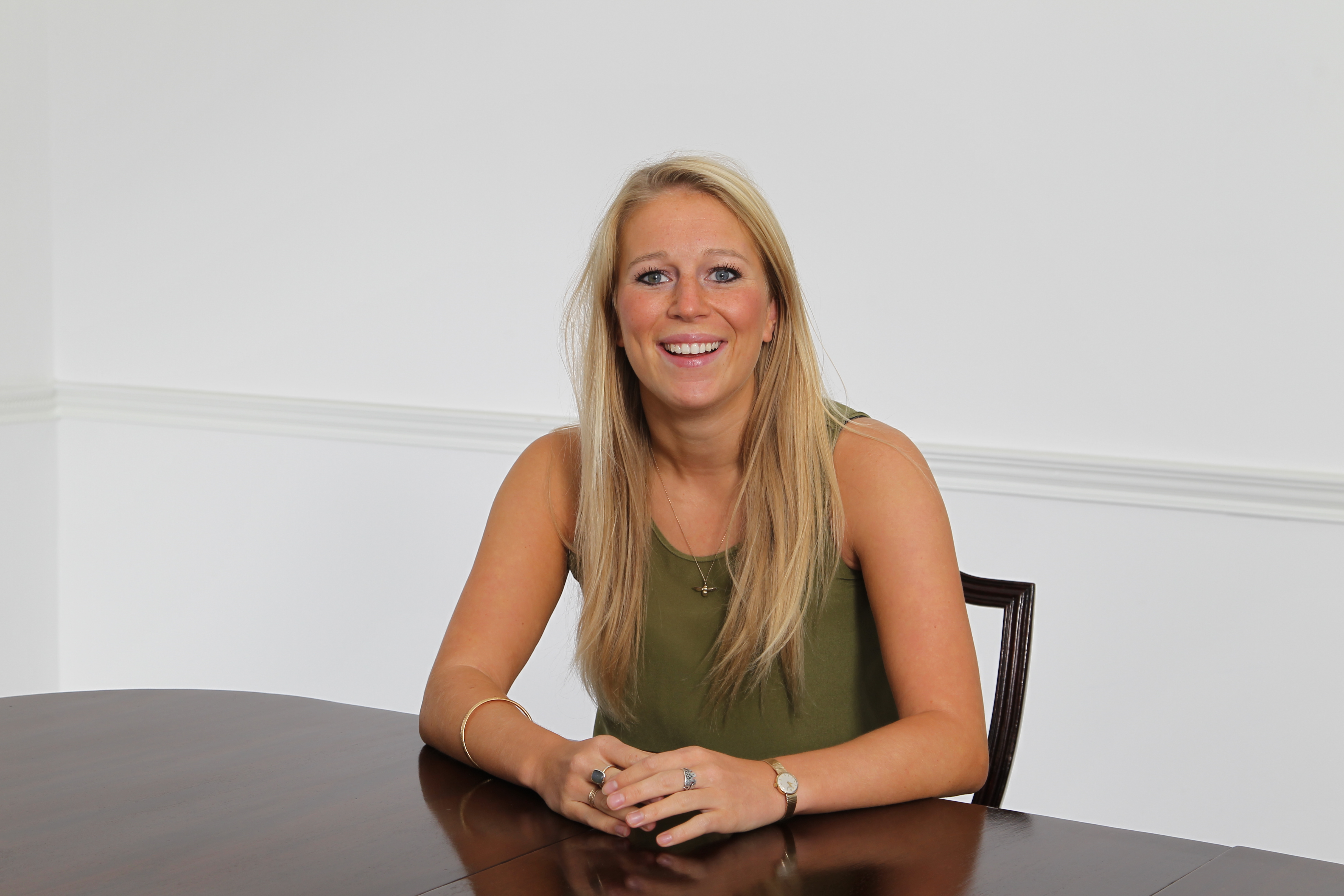
Although Forsters predominantly focuses on real estate and private client, it has grown rapidly over the past 20 years and is now making its mark in other areas of law. “By way of example, our family department is doing brilliantly and is involved in a number of fantastic high-profile cases and decision making,” says Victoria. “Our corporate department is also thriving – so we have our two principal areas, but the departments around those are really forging ahead too and building their own business.”
We have a traditional client base and traditional areas in which we work, but we’re forward thinking in our approach and I love that.
This is why Victoria believes a training contract at Forsters provides an excellent springboard into a legal career. Jo Thompson, trainee, agrees: “Getting my newly-qualified solicitor role in private client was a highlight”, she says, reflecting on her time to date. “It was just such a relief to secure it because during my training contract it has been my favourite seat. It’s the degree of client contact that you get which I love. You do the work and then meet the client and get to see it all come to life.”
The level of responsibility that Forsters’ trainees are bestowed with sets the firm apart. For Jo, there are clear differences between her experience and that of her friends who opted to work at larger firms: “They work with some really well-known clients and it’s exciting and very fast paced, but I think that I have more responsibility and that the calibre of work that I’ve done is better. Sometimes they can’t believe the level of the work that I’ve been asked to do – just the fact that I’ve been trusted to do a particular draft or research a certain subject.”
Forsters expects a lot from its trainees, so it’s unsurprising that it invests significant resources into ensuring that its recruitment process allows it to identify the best candidates. “We’re constantly reviewing our processes and at the end of each graduate year we have a full debrief on what we’ve done and what we need to improve for the next year,” explains one of the HR officers on the graduate recruitment team. “For example, in 2015 we introduced assessment days so that we could test candidates over more areas. They now have an interview, a written case study exercise and a group exercise to do on the assessment day. This gives them the opportunity to showcase their skills across three different exercises and gives us the chance to see how they perform, which enables us to get a fuller picture.”
One of the reasons why they’re so involved is that they understand how important developing our future trainees is.
Following the assessment day, Forsters identifies 14 students to complete a two-week vacation scheme at the firm, which they attend in two groups of seven. Candidates then undergo a second round of interviews as part of the training contract selection process. For Jo, this second interview was the most challenging, although she looks back on it fondly: “We were assigned a topic, on which we had to do a presentation and then answer questions. Mine looked at tax avoidance and evasion, and Gary Barlow’s own tax affairs. It was nice because I came out of it and I didn’t feel like I wanted to burst into tears, as I had with a couple of other interviews. The partners were very encouraging. It felt like a two-way interview because when we had the debate, I would ask questions too, so it wasn’t just them questioning me, it was more of a discussion.”
At Forsters, partners are heavily involved in the recruitment process, with a panel of 12 conducting interviews, participating in the assessment process and reviewing the candidates’ performances. “One of the reasons why they’re so involved is that they understand how important developing our future trainees is”, as the HR team explain. “They’re willing to invest their time and effort in making sure that we get the right candidates.”
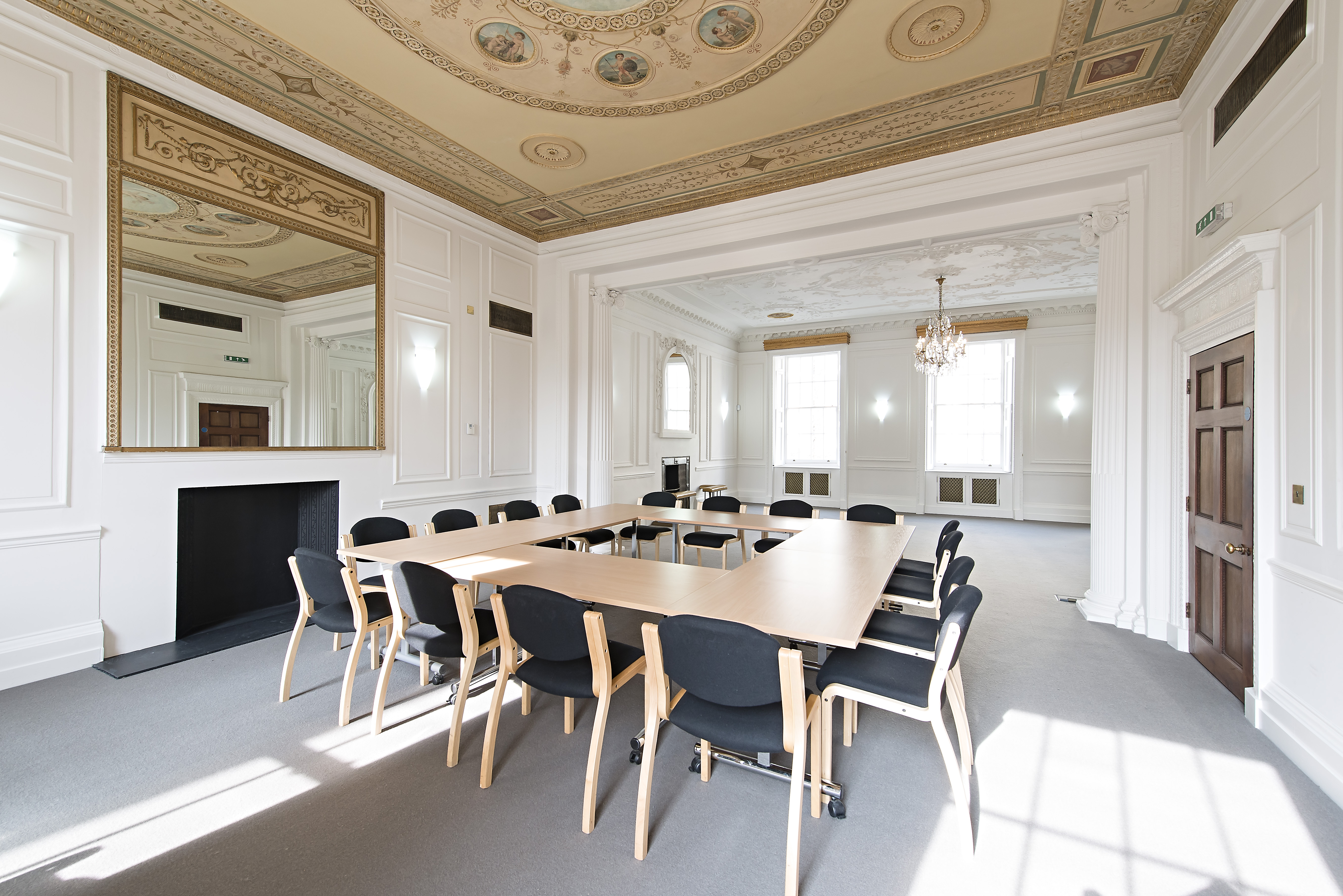
So what does the right candidate look like? For Victoria and the graduate recruitment team, commercial awareness and an ability to think strategically are both important factors. “We’re also looking for team players who are resilient, excellent at problem solving, personable, driven, ambitious and honest”, she adds. “They have to have integrity, a strong work and service ethic and a real desire to contribute to the life of the firm.”
Competition is tough, with Forsters choosing just seven to nine trainees each year. For Victoria, this means that each trainee gets exposure to great work: “You’re not just a number,” she enthuses. Jo agrees, citing Forsters’ position as a medium-sized firm as one of the main reasons she applied for its vacation scheme: “I did work experience before applying for any internships or vacation schemes and it just became so clear that I didn’t want to apply to any large firms”, she recalls. “I wanted to apply to a medium-sized firm because trainees are generally more involved in the work. You’re a medium cog in a medium wheel rather than a tiny cog in a massive wheel.”
Like most firms, Forsters recruits two years in advance, but trainees receive a lot of support from the start. In addition to financial help, the HR team are there to answer any questions that they might have. “They are brilliant”, Jo enthuses. “They are great at keeping things on track and making sure that you’re invited to everything. I went to at least four or five events a year leading up to starting as a trainee, so by the time I got here, I already knew quite a few people.”
You always feel like you can ask for help, which is so important – especially because the law is always changing.
With collaboration among colleagues being one of the firm’s core values, this emphasis on relationship building is clearly important. “I know everyone says it and it feels a bit cliché”, Victoria says, “but we are approachable and everyone who comes here says that. Those who take part in the vacation scheme consistently enthuse about the collegiate feel the firm has and how everyone is made to feel extremely welcome.”
“Everyone’s kind and really fun”, agrees Jo. “You always feel like you can ask for help, which is so important – especially because the law is always changing. There are always things you don’t know, so it’s crucial to have that camaraderie and Forsters has it in spades.”
This is apparent at every level, with trainees and partners working in close collaboration: “There’s so much partner contact”, Jo says. “Every day I probably work with four different partners. Nearly every piece of work that I do will be structured so that a partner, a senior assistant or associate and me will be working on it, although sometimes it’s just the partner and me. I’ve done quite a few presentations with partners, which is quite a nice way to get to know them and learn more about a subject area.”

This isn’t the case everywhere: “Having worked here, I think it’s crazy that there are some firms where you don’t have partner contact”, she continues. “I can’t imagine what that would be like! Today, for example, I drafted a will and had feedback from a partner for about 20 minutes – just explaining why things are like they are, why the precedent is how it is. I found it really helpful.”
Such a hit-the-ground-running approach may seem daunting, but Forsters has processes in place to ensure that its trainees can thrive. “We do expect a lot”, Victoria admits. “Obviously the Solicitors Regulation Authority sets out its practice standards, but we felt like there were more things that we wanted our trainees to be able to do by the time they finished their two years”. To help trainees, Forsters introduced a training competency framework in 2016. “It sets out our expectations so that trainees have a reference point and know how to achieve their objectives”, Victoria explains. “This gives them a really solid platform to work out how they’re doing in their training contract, what areas they need to work on and how they’re meeting expectations.”
For, this approach has been extremely helpful. “I’ve had really good training here”, she reflects. “Everyone’s been really involved since day one. It’s quite scary when you start, but the more you’re given to do and the more responsibility you’re entrusted with, the more room you have to use your initiative and take responsibility for your work, so you improve massively.”
I feel really lucky to work here. I don’t think everybody can say that. If someone told me that I would stay here for my whole career, I’d be fine with that.
Although she’s been trusted with a lot of responsibility, Jo loves the emphasis that Forsters places on work-life balance. “I work really hard every day”, she states, “but most people are out of the office by seven. When you’re here you work hard and you get your head down, but life is a priority”. Victoria agrees, citing the firm’s lack of presenteeism as a distinguishing factor: “Ultimately, we realise that people have a life outside work and we encourage them to have that.”
This level of freedom and flexibility was particularly appealing for Jo when thinking about her long-term plans: “There are so many women here and so many female partners who have kids – and who see their kids – and that was really appealing to me”, she explains. “It was quite clear that I could have both and that I wouldn’t have to make that sacrifice”. Ultimately, Jo – who turned down a final interview with a competitor to take the role at Forsters – couldn’t be happier with how things have turned out: “I feel really lucky to work here”, she admits. “I don’t think everybody can say that. If someone told me that I would stay here for my whole career, I’d be fine with that.”
It’s evident that Forsters is a rewarding place to work, which – for Victoria – comes down to its forward-thinking approach. “We’re very self-aware”, she sums up. “We are ambitious, but not arrogant. I think the attitude that the partners have, which flows through the firm, is that we are very much custodians of what we have got and what we do. It’s all about leaving something valuable and creating an environment that we can pass on to the future, which is our trainees.”
The HR team agree: “It’s really important for us to have those future partners and therefore we need to invest the time and money into the process to get the right candidates to continue that success, which is why graduate recruitment is so important to the firm.”
By Emily Gilmore

Best Recruiter – Medium City Firm
The recruitment process was excellently run. With friendly communication, and a high level of partner involvement, I was made to feel that the firm genuinely valued its trainees and was fully invested in the recruitment process.
Best Trainer – Medium City Firm:
Farrer & Co LLP
The work environment is brilliant, with a truly collegiate feel. It strikes the right balance between efficiency, hard work and support.
In the year 1701 Frederick I was crowned the first King of Prussia, the last Habsburg King of Spain died without an heir, prompting the beginning of the War of Spanish Succession, and in England the convicted pirate Captain William Kidd was hanged at Execution Dock in Wapping. Meanwhile, over in central London Tempest Slinger set up his office at 5 New Square and established the legal firm that would go on to become Farrer & Co. Over 300 years later and the firm continues to prosper, serving the highest calibre of national and international clients in a range of practice areas from corporate, banking and employment to private client, family and charities law.
Despite Farrers’ thoroughbred history and strong values, the firm is resolutely focused on positioning itself for the future and refining its processes for attracting the best trainees. After being on the trainee interview panel for 11 years, this year Claire Gordon took over as the graduate recruitment partner and is excited about changes being implemented to the overall recruitment procedure: “We have made some changes to our processes this year, including working with Aspiring Solicitors, an organisation that aims to increase diversity in the legal profession. We want to ensure that we are being as objectively fair and transparent as we can be; so we have reviewed our interview process, the questions we ask and the criteria we apply, basically making sure that we are giving everyone a level playing field and hopefully getting the very best candidates that we can.”
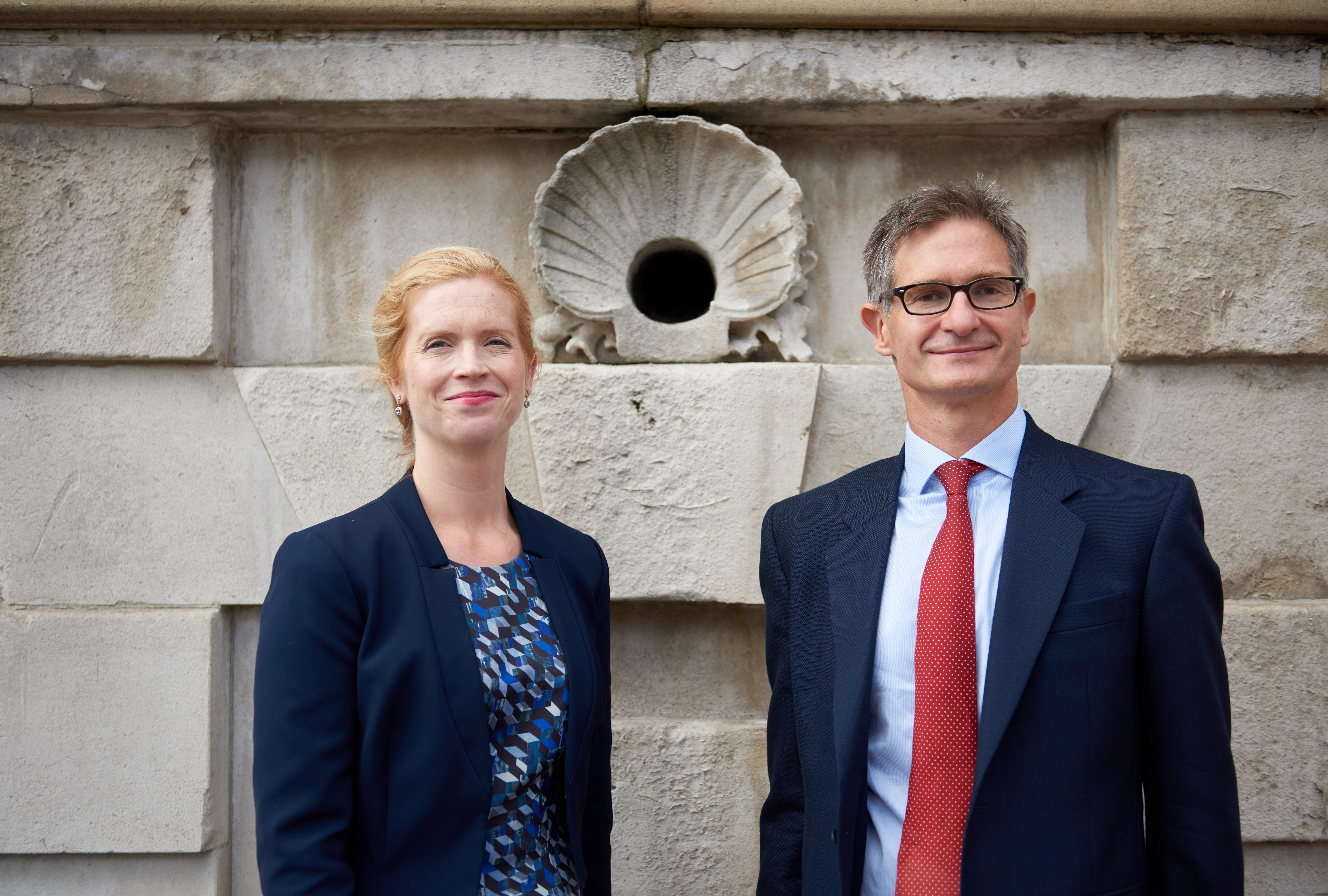
Recruiting the right candidates is key for the future of the firm, but as Claire stresses, Farrers is not interested in building a cohort of identical trainees: “We do want people with great CVs, but that is not the be all and end all. Intelligence doesn’t just mean good grades, and we are also looking for people with bags of charm and common sense, who are real all-rounders.” She goes on to say that the firm “has no identikit mould – we like people to be different. We have no objection to trainees being quirky and interesting as our clients come from a huge range of backgrounds with a variety of legal issues, so for us it is good to have a diverse group of characters among our lawyers”.
We have made some changes to our processes this year, including working with Aspiring Solicitors, an organisation that aims to increase diversity in the legal profession.
First-year trainee Josh Pugsley is just such a candidate; before working as a paralegal at other law firms and securing his training contract at Farrers, he worked as an actor and a stage combat fight director. Looking at the current intake of 10 trainees he observes: “About half of us have had a different career before, so it is pretty common. If you are straight out of university the firm will be interested in you, but equally if you have had a completely different career it is also keen to see what you have got to offer.”
The firm offers a vacation scheme, which while not mandatory for would-be trainees, can prove to be incredibly useful, as Josh describes: “It was two weeks long and it was excellent, confirming to me that Farrers was where I wanted to go.” Although there is no interview during the vacation scheme, candidates are assessed by supervisors and after the scheme they can reapply for the training contract. As Josh explains, once the application is received “they look at how you did on the vacation scheme and the notes from supervisors”, then there is a final interview with two partners. “The interview itself was very conversational which was nice; they focus on your CV and really try to understand what you’re about, why you want to come here and what your strengths and weaknesses are. The interview is quite thorough, but it was a conversation, they weren’t playing games or trying to make it a difficult experience.”
Once a contract has been secured at the firm, the training and recruitment team are keen to ensure that all trainees are settled and feel part of the Farrers family on their first day. “Straightaway they pair you up with a buddy, who is usually a junior associate and someone who can remember what being a trainee is like,” describes Josh. “Between securing your training contract and being a year into the firm, over those three years you will go for regular lunches and have a catch up and a chat with them. It makes your arrival at the firm a lot smoother and you can ask them any questions about what you need to do before you start on day one.” The firm tries hard to make the transition as easy as possible, as Josh stresses: “Before you start they will pay your GDL and LPC fees and give you a bursary, and invite you to any firm-wide events. They also have trainee-specific events, like a Christmas lunch and Easter open day, all of which help you feel a part of the firm before you join.”
Intelligence doesn’t just mean good grades, and we are also looking for people with bags of charm and common sense, who are real all-rounders.
Anthony Turner, who is taking over the role of training principal from Paul Krafft, emphasises that this level of support is a crucial part of the training contract as trainees are expected to hit the ground running when they start: “We expect them to be proactive, take responsibility, learn and be engaged in what they are doing. We have a wide range of seats and we expect trainees to do as much as they can to help out; we want them to start thinking about the role of a lawyer and being a really helpful spoke in the Farrers wheel.”
Farrers sets itself apart in the way that its training contract is organised, as Anthony explains: “The main difference is our six-seat system, where most firms will have four six-month seats. Our four-month seats mean that trainees see a greater number of departments; Farrers is a broad firm in the sense that roughly half is corporate and commercial-related and the other half is private client-related, so trainees gain a good insight into the two sides with the short seats. The final four-month seat is the one into which the trainee will qualify, so they will have done eight months in their chosen seat before they become a qualified solicitor.”
As Claire points out, although this system may throw up challenges for the firm’s individual departments, it is really important for the trainees: “Our six-seat system is extremely valuable and potential candidates may not realise that. Having that opportunity to see five rather than four seats is fantastic. It can be a challenge for the firm because after three or four months in a seat, trainees become really useful and then they move on, but this is an investment we make so trainees can gain more experience and have a seamless transition, which we think is key.”

Anthony emphasises that the whole point of the training contract is to “help trainees find what they are good at; not all individuals will be naturally suited to all practice areas”. To enable this, variety is key: “The training is quite different, principally because we do a broad range of work. If you went to many City firms you would be a corporate lawyer of some form, whereas at Farrers you could be a family lawyer, a private client lawyer, a banking lawyer, a financial services lawyer or an employment lawyer, so you will definitely find your fit.”
This variety of work can be daunting and expectations are high for trainees when they start their contract, but the support that the firm offers is a central aspect of the training and this is provided by a recruitment and training team which consists of individuals from across the firm. Claire describes the systems in place: “We have a training principal who takes overarching responsibility and then each trainee will have a buddy, an individual principal and a supervisor in each seat, with whom they usually sit in an office. This means that they are closely supervised to ensure that they get a good mix of work, are not overloaded and have someone to learn from and work with.” From his recent experience, Josh explains that the contact he has had with his principal, who is head of the banking team, has been invaluable: “He and I can go for a coffee or lunch and talk about my career in specific terms, where I am going and whether I enjoy it, and how I can improve – to have that strand of support is really useful.” The aim of the individual principals is to provide the trainees with someone who is looking out for them and is engaged in their progress, as Claire observes: “That is something that doesn’t stop; I still see my training principal 20 years on – there is often true friendship!”
This high level of retention is another key characteristic of Farrers; the firm takes on 10 trainees every year and many will stay for a very long time, which plays into its stable and consistent identity. “We are very sure of who we are as a firm,” Anthony expounds. “We have a very clear strategy, to maintain and grow our position as a pre-eminent independent London law firm.”
If you are straight out of university the firm will be interested in you, but equally if you have had a completely different career it is also keen to see what you have got to offer.
Farrers manages to maintain this retention rate by offering trainees the opportunity to work at the top of their game in a broad selection of practice areas – just one of the ways the firm particularly stands out from its competitors, as Anthony highlights: “At Farrers you will get the breadth of training to make a better – and wider – choice of where to qualify. When you do qualify, nearly all of our teams are top ranked in the legal directories, so they are excellent at what they do and have fantastic clients. There aren’t that many firms that have the same breadth to the same standard.”
For a firm that has been so successful for so long, establishing and maintaining a consistent identity has been incredibly important and will continue to be so in the future, as Claire sums up: “We know who we are, we like who we are and we will carry on doing what we do best. Although we are continually evolving and moving with the times, it is really important to us to stay true to our values. Any new idea needs to be true to our vision and culture; if it isn’t, then it won’t happen. Keeping the sense of who we are while looking to the future and being proactive is the reason why the firm has been around for so long. Simply put, it’s a great place to work!”
By James Lilford

Best Trainer – Medium City Firm:
The work environment is brilliant, with a truly collegiate feel. It strikes the right balance between efficiency, hard work and support.
Best Work Placement Scheme – Regional Firm
Burges Salmon LLP

The firm’s culture particularly struck me; we were given trainee buddies and everyone was genuinely friendly. Now I have joined the firm, some of the connections I made on my vac scheme got in touch to welcome me. The work was high quality and I got a real flavour for how life would work here.
Burges Salmon is the independent UK law firm which delivers the best mix of advice, service and value. We pride ourselves on delivering an excellent standard of legal and business advice to our clients. Many of our practice areas and sectors win awards and recognition as best in class. Our national and international client base ranges from private individuals to government departments and FTSE 100 companies including The Crown Estate, Nationwide, Lloyds Banking Group, John Lewis, The Nuclear Decommissioning Authority and FirstGroup.
The quality of our expertise is widely recognised across our main departments including corporate and financial institutions, dispute resolution, planning, construction and engineering, projects, real estate and private client. The key sectors in which we operate are energy, power and utilities, financial services, infrastructure, private wealth, the public sector, real estate, and transport.
Our people make Burges Salmon great. They embody and demonstrate our values of ambition, collaboration, commitment, fairness, quality and respect every day. Our distinctive culture is evident across the firm. Although we work far and wide, all our people are based in our HQ in Bristol. This means we all know and work with each other and never sit more than a few minutes’ walk apart. In fact, team playing is core to our approach to delivering a great client experience. We are accredited by Investors in People Gold and offer our people a generous benefits package, career development and progression, and a strong corporate responsibility programme. We believe it’s a great environment in which you’ll flourish.

Best Work Placement Scheme – Regional Firm
The firm's culture particularly struck me; we were given trainee buddies and everyone was genuinely friendly. Now I have joined the firm, some of the connections I made on my vac scheme got in touch to welcome me. The work was high quality and I got a real flavour for how life would work here.
Commendation for Diversity
Reed Smith

This firm stood out for its commitment to both fostering a diverse and inclusive culture at the firm, but also for a passion to drive change within the profession.
Lorem ipsum dolor sit amet, consetetur sadipscing elitr, sed diam nonumy eirmod tempor invidunt ut labore et dolore magna aliquyam erat, sed diam voluptua. At vero eos et accusam et justo duo dolores et ea rebum. Stet clita kasd gubergren, no sea takimata sanctus est Lorem ipsum dolor sit amet. Lorem ipsum dolor sit amet, consetetur sadipscing elitr, sed diam nonumy eirmod tempor invidunt ut labore et dolore magna aliquyam erat, sed diam voluptua. At vero eos et accusam et justo duo dolores et ea rebum. Stet clita kasd gubergren, no sea takimata sanctus est Lorem ipsum dolor sit amet. Lorem ipsum dolor sit amet, consetetur sadipscing elitr, sed diam nonumy eirmod tempor invidunt ut labore et dolore magna aliquyam erat, sed diam voluptua. At vero eos et accusam et justo duo dolores et ea rebum. Stet clita kasd gubergren, no sea takimata sanctus est Lorem ipsum dolor sit amet.

Commendation for Diversity
Lorem ipsum dolor sit amet, consetetur sadipscing elitr, sed diam nonumy eirmod tempor invidunt ut labore et dolore magna aliquyam erat, sed diam voluptua. At vero eos et accusam et justo duo dolores et ea rebum. Stet clita kasd gubergren, no sea takimata sanctus est Lorem ipsum dolor sit amet. Lorem ipsum dolor sit amet, consetetur sadipscing elitr, sed diam nonumy eirmod tempor invidunt ut labore et dolore magna aliquyam erat, sed diam voluptua. At vero eos et accusam et justo duo dolores et ea rebum. Stet clita kasd gubergren, no sea takimata sanctus est Lorem ipsum dolor sit amet. Lorem ipsum dolor sit amet, consetetur sadipscing elitr, sed diam nonumy eirmod tempor invidunt ut labore et dolore magna aliquyam erat, sed diam voluptua. At vero eos et accusam et justo duo dolores et ea rebum. Stet clita kasd gubergren, no sea takimata sanctus est Lorem ipsum dolor sit amet.

